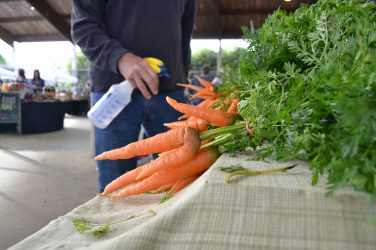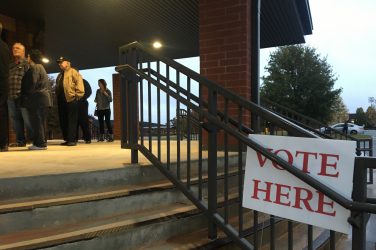As Hurricane Dorian barreled toward the Golden Isles, residents across Georgia shared a collective thought: here we go again. The storm looked as if it was heading toward an area of the state not even a full year removed from the impact of Hurricane Michael in 2018.
Hurricane Michael made landfall on the Florida panhandle as a Category 5 storm, and hit Georgia on Oct. 10-11. According to a report by representatives of the University of Georgia Cooperative Extension program, the state lost an estimated $2.4 billion of agricultural products and capital. The storm cost an additional estimated $373 million in agriculture sector losses, representing the damage impacting Georgia agribusiness firms.
Why It’s Newsworthy: A large sector of Georgia’s economy belongs to agriculture, especially in the northeast region of the state. Weather patterns can impact both the cost and supply of food, even if the weather does not directly affect residents.
An Incoming Storm
On Sept. 1, Gov. Brian Kemp asked residents of several counties in South Georgia to evacuate, including those in Savannah and all areas east of Interstate 95. The Port of Savannah closed operations on Sept. 3-4 and reopened Thursday afternoon.
Under Gov. Kemp’s evacuation order, residents were required to leave the city, and Interstate 16 opened for westward contraflow. As the order was lifted and eastbound traffic reopened on I-16, operations workers were told to report back by 1 p.m on Thursday.
Eddie DeLoach, the mayor of Savannah, helped lead evacuation efforts with outside assistance from the Georgia National Guard and the Georgia Emergency Management Agency. He said since the path of Hurricane Dorian appeared to be “very similar to Hurricane Matthew a couple years ago,” the area was prepared and had strategies in place to ensure public safety.
“The biggest issue is just convincing people to leave when the skies are still clear,” DeLoach said.
Following the Money
Harvesting season for peanuts in Georgia has recently begun, and cotton will start in just a few more weeks, so the timing was not ideal for the state’s agriculture industry. With cotton prices running as low as 58.08 cents a pound in July, another hit could cause more damage after losing upward of $550 million last year from Hurricane Michael.
“Farmers are able to store their crops, so a closure for a couple days should not impact too much,” DeLoach said. “If it were longer, it could be a different story.”
The poultry industry, especially in the northeast region of the state, makes up another key component of Georgia’s agricultural economy. Georgia is the top state in the nation for producing broiler chickens, which are raised for meat.
In 2015, poultry was the leading waterborne export from the Savannah port, making up 30% of total exports. The industry has accounted for $489.28 million in exports from the start of 2018 to July 2019.
The agriculture business in northeast Georgia can be affected by a coastal storm hundreds of miles away. Crops like peanuts can be stored in facilities for as long as a year, but poultry, whether sold whole, processed or frozen, is not always afforded the luxury of waiting.
“For ag products, the big thing is spoilage,” said Jeffrey Dorfman, professor of applied agriculture and economics at the University of Georgia. “As long as the shipment is something that won’t spoil, a few days delay rarely has much impact, but when it is perishable then the losses can mount pretty quickly.”
Hurricane Dorian largely missed the Georgia coastline in early September; however, with the increase in storm activity over the past several years, weather is a factor now more than ever in the agriculture industry. In an economy so reliant upon agriculture and exportation, the state as a whole could be more susceptible to the impact of weather in the future.
Matthew Couper is a senior majoring in journalism and political science in the Grady College of Journalism and Mass Communication and the School of Public and International Affairs at the University of Georgia.







Show Comments (1)